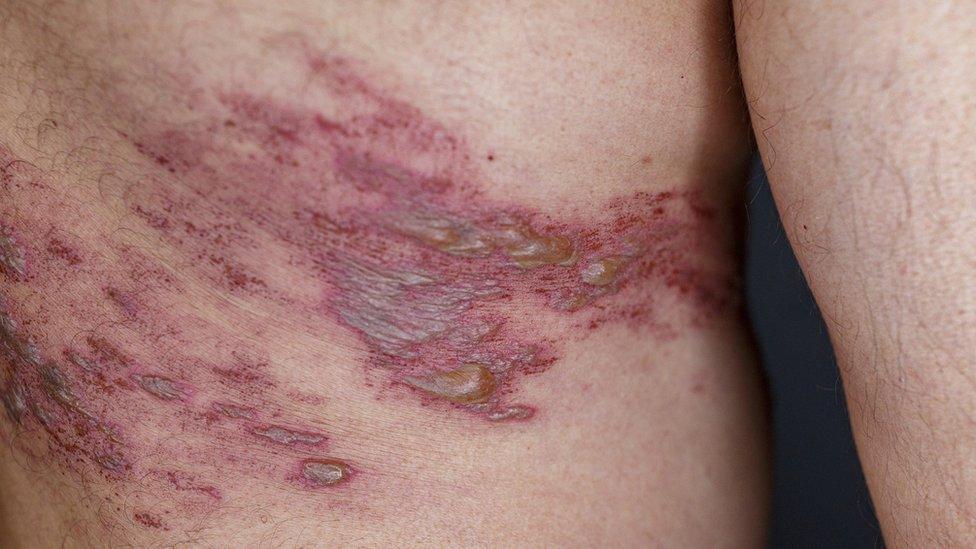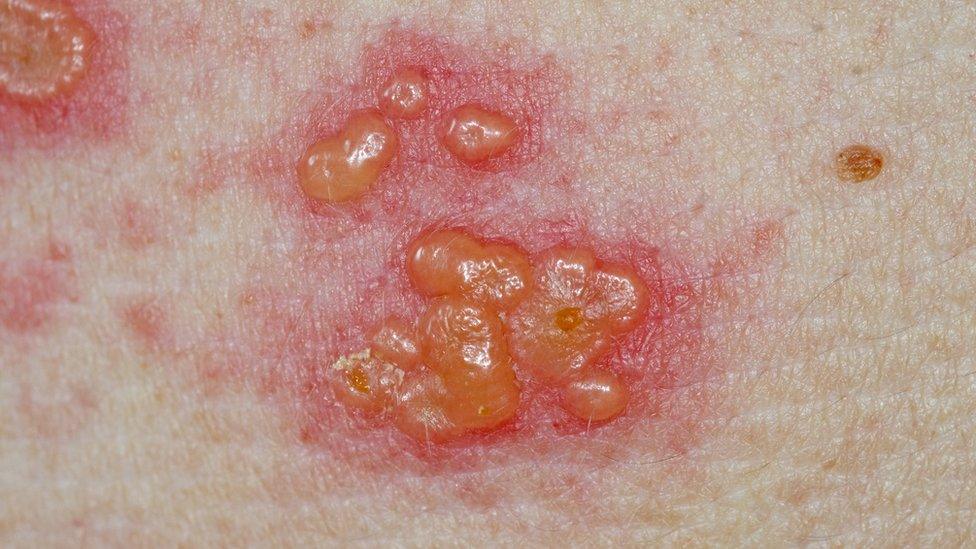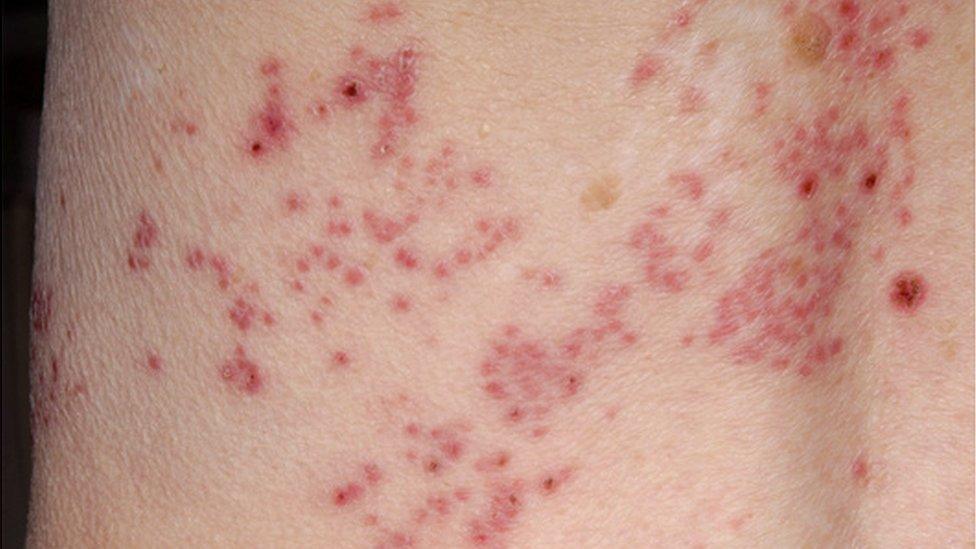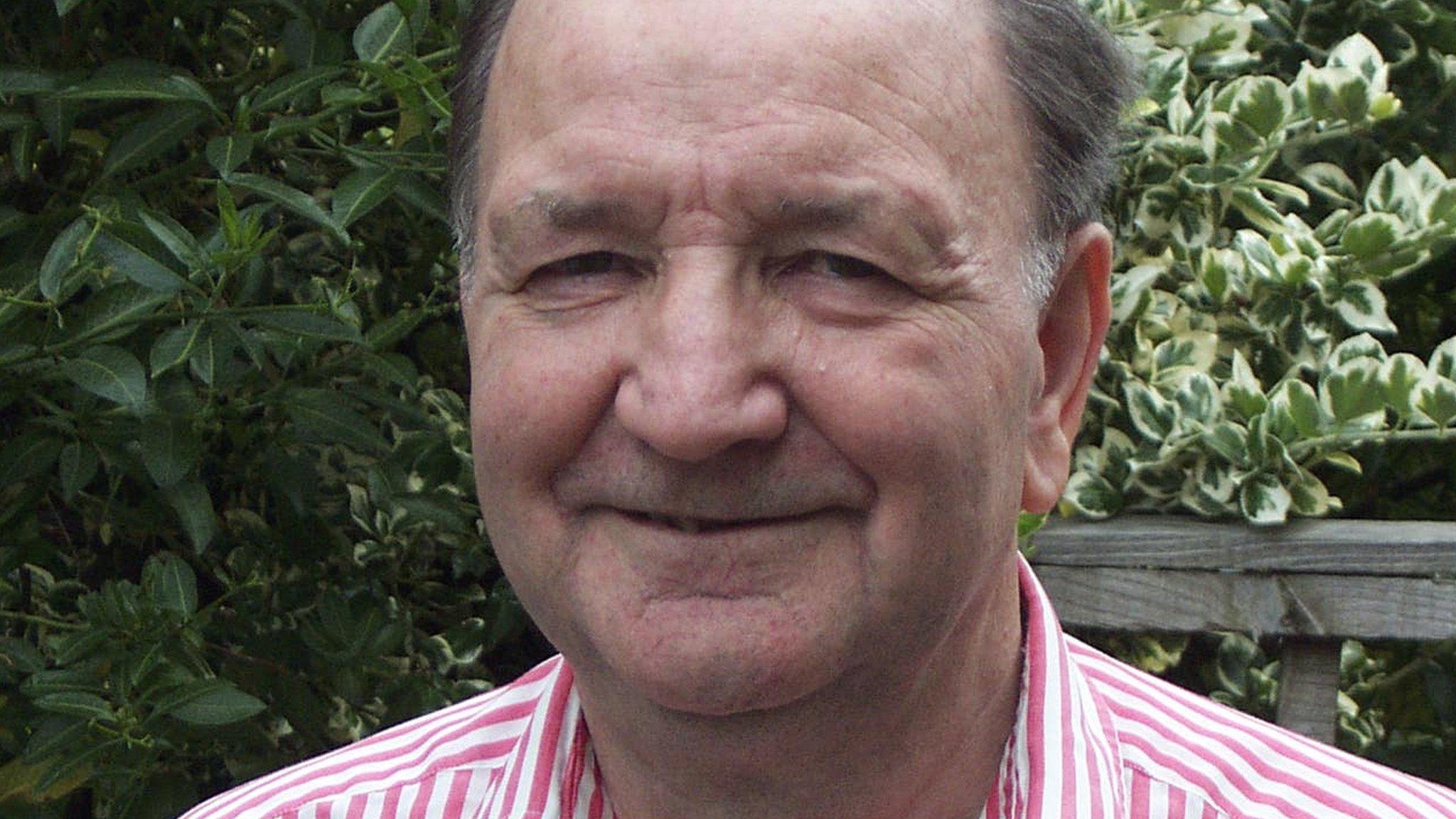Shingles vaccine extended to vulnerable over-50s
- Published

Nearly one million more people in England can have a vaccine against shingles on the NHS from September.
Anyone turning 65 will now be eligible, plus those over 50 with a severely weakened immune system - it was previously available to over-70s.
Shingles is an extremely painful condition, external which can develop after a chicken pox infection.
One in four people get it in their lifetime, and the complications increase the older you are.
In serious cases, symptoms can include blindness, hearing loss and nerve pain, and - in some instances - shingles can kill.
For many, it's a painful skin rash which develops on one side of the body, usually the chest.
Shingles occurs when the chicken pox virus already in your body is reawakened - usually by illness, stress or getting older. You can't catch it from someone else.
The risks of serious symptoms are particularly high in people who are extremely vulnerable or immuno-suppressed, with conditions such as blood cancer.
UK vaccine experts recommended vaccinating more people after trials showed the jab was safe and very effective for these groups.
GPs and practice nurses are likely to offer the shingles vaccine during routine visits or check-ups.
Protection
NHS England urged those eligible from September to take up the offer of the jab, saying it would "provide peace of mind and save lives".
"Please do not put off getting the jab if you are eligible," said Steve Russell, national director of vaccinations and screening.
Dr Mary Ramsay, director of immunisation at the UK Health Security Agency, said: "Two doses of vaccine are highly effective in reducing your risk of getting shingles, or - if you do develop shingles - reducing the severity of your symptoms."
Two doses of a vaccine called Shingrix will be offered, with a gap of eight weeks to six months between doses for the extremely vulnerable, and a longer gap of 6-12 months for everyone else.
Charities representing people with blood cancer welcomed the news that more people would be able to access the vaccine at a younger age.
"If you are living with blood cancer, you are likely to have a weakened immune system, which means you are more likely to develop shingles and experience more serious side-effects," said Fiona Hazell, chair of Blood Cancer Alliance and chief executive of Leukaemia UK.
"It is important to get all the protection you can and get your shingles vaccine as soon as you become eligible."
NHS England said that by September 2028, even more people would be able to get the jab, with anyone aged 60 and over being offered the shingles vaccine.
Related topics
- Published12 April 2022

- Published22 December 2017

- Published30 April 2013
